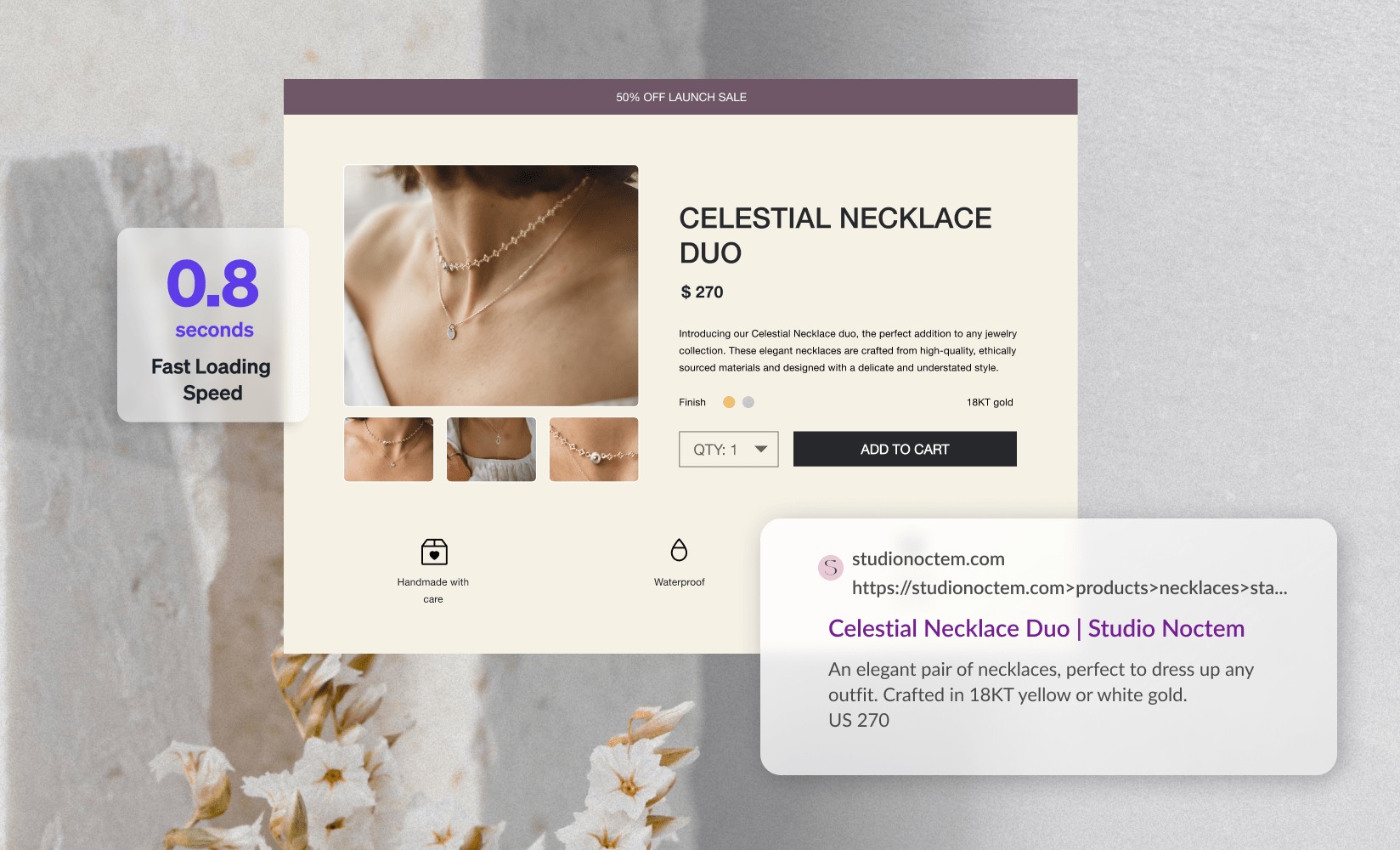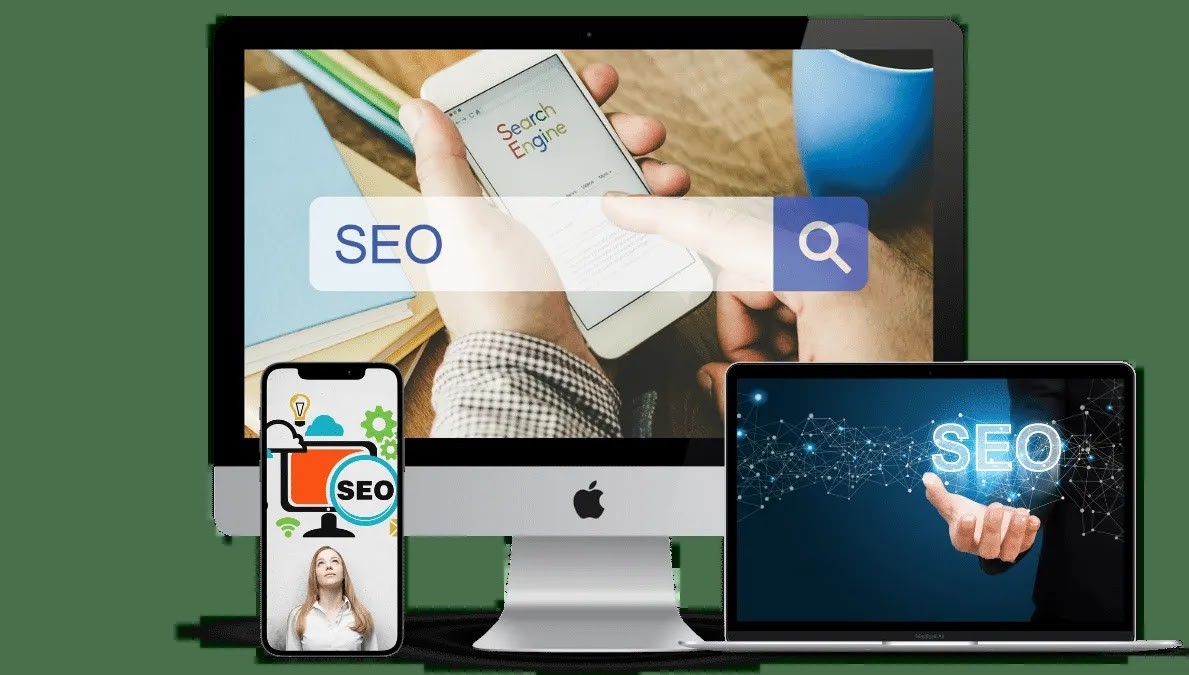Let me take you behind the scenes of a small but mighty Charlotte SEO company that has been working closely with Google since its early days, when the company was still in its infancy. I’m talking about Above Bits — or as we call it in our emails and server labels, AB. With nearly two decades of digital marketing experience and a well-earned reputation for not just surviving every Google core update but thriving through them, AB has figured out how to use today’s most innovative SEO tools without blindly obeying them.
And that distinction is essential.
In a world where AI-generated content floods the web, where every tool is promising to be your ultimate shortcut to page-one glory, and where marketing automation has become dangerously close to the digital version of fast food, knowing how to take advice from software without letting it take the wheel is the edge every business needs — whether you’re selling cupcakes in Charlotte or running an eCommerce empire in North Carolina’s Research Triangle.
So let’s talk about the tools, the techniques, the temper tantrums of Google, and why Above Bits still prefers to look under the hood rather than just trusting the dashboard.
Why Everyone Thinks AI SEO Tools Are Magic (And Why They’re Only Half Right)
I still remember when people thought Yoast was “the future.” You’d slap it on your WordPress site, turn all those red dots green, and BAM — traffic, rankings, and the sound of cash registers.
But we’ve come a long way since then.
Today’s SEO tools, such as Surfer SEO, Semrush, Ahrefs, and SEO Surfer, as well as AI-based writing tools like Frase and Jasper, promise a comprehensive SEO experience: content generation, keyword research, SERP analysis, competitor audits, on-page optimization, backlink tracking, and even AI-driven article outlines. They’re great, truly — until they start making your site sound like it was written by a caffeine-addicted robot with a marketing degree and zero empathy.
The issue is that most of these platforms utilize machine learning models trained on public web data, rather than actual business success stories. They can tell you that 78% of your competitors use the word “solution” four times on their homepage. But they can’t tell you that four is too many, or that “solution” sounds like corporate pudding. That’s where Above Bits steps in.
Using tools is smart. Letting them think for you? Not so much.
When the Bots Say Jump, This Charlotte SEO Company Asks Why
Let’s bring Charlotte into the picture.
Here in North Carolina, Above Bits has worked with numerous local businesses — from medical practices trying to outrank their competitors in Google searches to legal teams hoping to appear when someone searches for “I need a lawyer now, Charlotte.” We’ve tested just about every SEO tool on the market, including the hyped-up new kids and the old-school dashboard dinosaurs. And we always ask one question: Does this advice make sense for humans, or just machines?
Because while tools like Surfer SEO might suggest you use a keyword like “dentist Charlotte NC” exactly 7.4 times on a page, a human writer knows that one of those uses can be a little weird. For example, “Looking for a dentist in Charlotte, NC, who cares?” just sounds like we dropped prepositions to make Google happy.
Above Bits doesn’t let that slide. We write for people. Then we check the tools to ensure we haven’t ignored the algorithms entirely. That’s the order: humans first, robots second. And that’s a core reason why this Charlotte SEO company remains at the top, while others are clawing their way back after every Google update.
A Quick Glance at How Google Has Been Playing Mind Games
Speaking of Google updates, let’s take a moment to appreciate just how often the rules change. Google made over 4,000 changes to its search engine in 2023 alone, according to its own transparency report. Most of these were minor tweaks, but a few were earth-shaking, like the March 2024 Helpful Content Update, which de-ranked thousands of AI-generated content farms overnight.
Guess what Above Bits had already stopped doing? That’s right: blindly trusting AI to write content.
While others were stuffing in robotic phrases and relying on automatic content generators, AB maintained its focus on genuine writing, a layered SEO strategy, and genuine UX, which Google ultimately rewarded after months of warning about quality signals. Being ahead of the curve is nothing new here. We’ve been playing chess while others were still reading the rules of checkers.
Global SEO Behavior Is Weirder Than You Think

Now, here’s a stat that always surprises people: In Japan, pages with lower word counts actually outperform longer blog-style content — the average first-page result in Japanese search is around 600 words. Compare that to the US, where articles of 1,500 to 2,000 words still dominate most competitive search engine results pages (SERPs).
And then there’s Brazil, where mobile-first indexing means that if your site takes more than three seconds to load on 3G, you’re in trouble.
This is where global insights help local players. Above Bits stays tuned into these international behaviors, not because they’re serving sushi delivery apps in Tokyo, but because it allows them to reverse-engineer what really matters in local North Carolina SEO. If a strategy is effective globally under stress, it’s likely to work in Charlotte, especially when it’s fine-tuned to local signals.
Which is precisely what this Charlotte SEO company specializes in.
Using Semrush Without Losing Your Soul
Now let’s talk about Semrush, a tool we love — but like spicy food, it’s best in moderation.
Semrush can provide you with treasure maps of keywords, competitor backlink profiles, domain authority growth charts, and even alerts about toxic links. But too many people let Semrush dictate their entire strategy. Above Bits? We use it like a microscope, not a script.
Want to see why your competitor outranks you for “best landscaping Charlotte NC”? Semrush is perfect. But then we go in, look at their copy, their technical SEO, their loading speed, and figure out why Google likes them. Then we go one better.
We don’t just follow advice; we dissect it. And that’s where experience, not dashboards, makes the difference. Nearly 20 years in the game means Above Bits remembers a time before Google even cared about backlinks. We’ve been around long enough to know what’s hype and what’s foundational.
The Real Price of Fancy SEO Tools (And Why AB Stays Affordable)
There’s a quiet truth in the industry: many SEO agencies use their tool stack as a justification for high pricing. “We pay for Semrush, Surfer, Ahrefs, Screaming Frog, so you’re going to pay more too.” That’s the pitch.
But at AB, we take the opposite approach. Yes, we use those tools. But we’ve already amortized the cost of them into our workflow. We don’t pass those costs onto the client as line items. Why? Because that’s just not our style. We’re affordable by design — because we’ve seen what happens when SEO is treated like an elite game only big brands can play. Spoiler: it doesn’t end well for small businesses.
The Rise of “AI-First” SEO Agencies (and Why That’s a Problem)
Somewhere along the way, SEO got a little… overconfident. With the release of tools like ChatGPT, Jasper, KoalaWriter, and even custom GPT-based content generators, agencies around the world — from London to Bangalore — started producing thousands of AI-written articles per month. The cost dropped. The speed increased. The quality? Not so much.
You don’t need to be a digital Sherlock to spot these AI-fueled SEO websites. They’re loaded with generic phrases, lifeless intros, and paragraphs that sound like they were generated in a lab. That’s because they were.
Now, don’t get me wrong — AI has its place. Above Bits has played with it, tested it, and even used it to summarize dense technical docs faster. But would we let it write your homepage or product descriptions from scratch? Absolutely not. Google’s March 2024 core update proved this point in neon lights when they deindexed a staggering number of AI-stuffed pages across industries. Real, human-created content still matters—a lot.
That’s why our approach as a Charlotte SEO company blends automation with curation. We use AI to support, never replace. Our team knows that storytelling, brand tone, and humor don’t come from prompts — they come from people.
When Google Says “Speed,” We Ask “For Who?”

Now let’s talk site speed. Because if we’re being honest, nothing tanks SEO faster than a slow-loading site. But here’s the kicker: what counts as “slow” depends entirely on where you are.
In India, users expect mobile-first pages to load in under 2.5 seconds. In Germany, a delay of more than 3 seconds causes 40% of users to abandon the site, according to Statista. And in North Carolina, where a significant portion of users are still on older Android devices or have weak mobile data connections, even heavy animations can cause usability issues.
So, when Above Bits does a speed audit, we don’t just check PageSpeed Insights and call it a day. We test your site in multiple browsers, simulate slow network connections, and evaluate how real people — your target audience — actually interact with your content. That kind of analysis goes beyond metrics. It requires judgment.
And judgment doesn’t come from tools. It comes from experience—something this Charlotte SEO company has had in spades since the early 2000s.
The Surfer SEO Experience (and the AI Blind Spots We Watch Out For)
Let’s be real: Surfer SEO is an invaluable tool. It analyzes top-performing content and gives you actionable recommendations — how many headers to use, what keywords are overused, what keywords your competitors left on the table, and even a neat “content score” that makes copywriters feel either smug or sad.
But it also has some serious blind spots.
The surfer doesn’t know if your competitor’s article is ranking because of its great content or its domain authority of 95. It doesn’t know if a high-scoring paragraph is actually readable or just dense with keywords. And it doesn’t know your audience, your tone, or your industry.
So, when Above Bits uses Surfer, we treat it like a bright intern: helpful, fast, and occasionally wildly off the mark. We’ll take its suggestions and compare them to real-world business goals. If Surfer says we need to mention “affordable root canal Charlotte” 9 times in a single blog post, we’ll probably say no — because we’re not trying to make people run screaming from their dentists (or our writing).
That’s the thing about being a Charlotte SEO company: we know what Google wants, but we also understand what humans want. And we balance the two every time.
Negative SEO, Fake Backlinks, and the Battle for Authenticity
Here’s something that rarely gets talked about at dinner parties: negative SEO is still a thing.
Competitors — especially in industries such as law, healthcare, and finance — may sometimes employ shady tactics, including building spammy backlinks to your site or cloning your content to trigger duplicate penalties. Even with Google’s improved detection systems, these tactics can still negatively impact rankings.
At Above Bits, we’ve helped local businesses clean up after these messes more than once. Using tools like Ahrefs and Google Search Console, we diligently track backlinks. If something smells off, we dig in. If needed, we prepare and upload disavow files to ensure those junky links don’t negatively impact your rankings.
But here’s the big truth: prevention beats reaction. That’s why we always emphasize healthy link-building strategies, locally relevant citations, and partnerships that don’t appear to have originated from a bot farm in Belarus.
Authenticity matters — and not just for Google. For your brand, too.
Not All “Affordable” SEO Is the Same — And Here’s Why AB’s Still Worth Every Penny
Let’s talk money.
SEO agencies love to play games with pricing. Some charge a four-digit monthly fee and provide nothing but a PDF. Others promise page-one results for $99 per month, which usually means your site ends up stuffed into a blog network hosted on expired Russian domains.
Above Bits takes a different path. We’re not the cheapest. But we are affordable. And what you get is a team of experienced humans, not an overseas content mill. We don’t have layers of account managers. You talk to someone who knows how to fix schema markup. You receive reports from the individuals performing the work, not recycled slides from an agency template.
In Charlotte, where small businesses are the heartbeat of the city, this model works. We don’t lock you into bloated retainers or endless contracts. We just make SEO make sense — and make money — for your business.
And we’ve been doing it for nearly twenty years.
Beyond Rankings: SEO as Strategy, Not Just Tactics
The last thing I’ll leave you with is this: SEO is not a checkbox. It’s not a blog post quota or a keyword list. It’s a strategy — a long game. And it touches everything: your site structure, loading time, content, backlinks, mobile design, and even your brand.
At Above Bits, we’ve helped Charlotte businesses rethink their entire approach to digital visibility. Not by selling them something shiny. But by digging deep into what works and why, and building a foundation that can survive Google’s following 10 updates, not just today’s trend.
So if you’re tired of overpriced SEO fluff, generic advice from AI tools, and agencies that don’t even open your analytics — give us a shout. We’re here, we’re human, and we know what Google wants.
Trust Local, Think Global, Rank Everywhere
SEO isn’t just an art. It’s a balancing act between tech and intuition, automation and empathy, scale and specificity. And in the middle of all that complexity, one truth remains: local knowledge wins.
Above Bits has been in the game long enough to know which SEO tools actually help and which ones just add to your monthly invoice. We’ve blended AI insight with human creativity, global best practices with Charlotte-specific know-how, and we’ve done it affordably — on purpose.
So if you’re looking for a team that’s been there, ranked that, and still takes the time to write articles like this one instead of just feeding prompts into a bot, you’re in the right place.
Your following great Google ranking might not come from a $5,000/month agency in Manhattan. It might just come from a few blocks down the street, powered by the local experts in SEO
at Above Bits.









